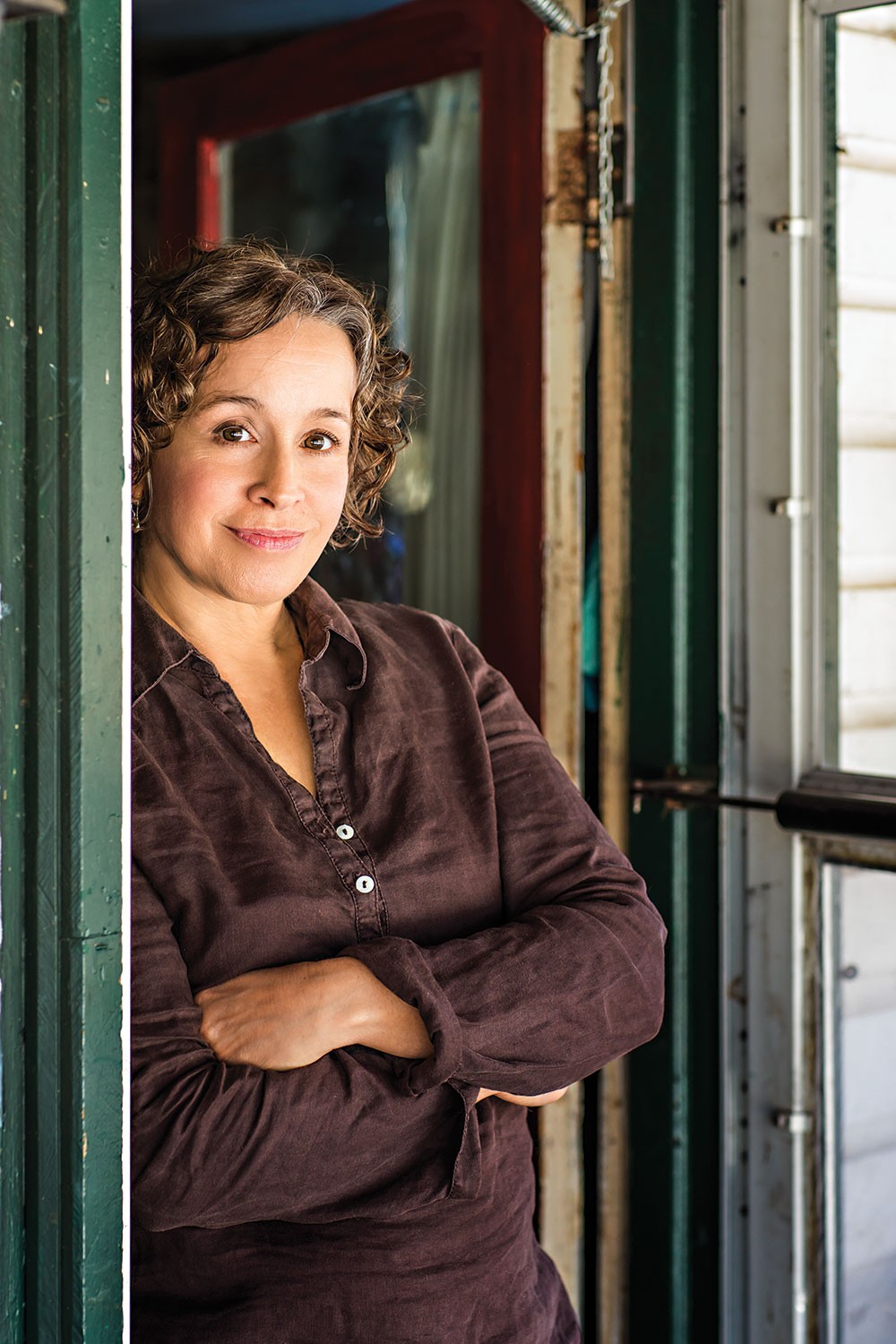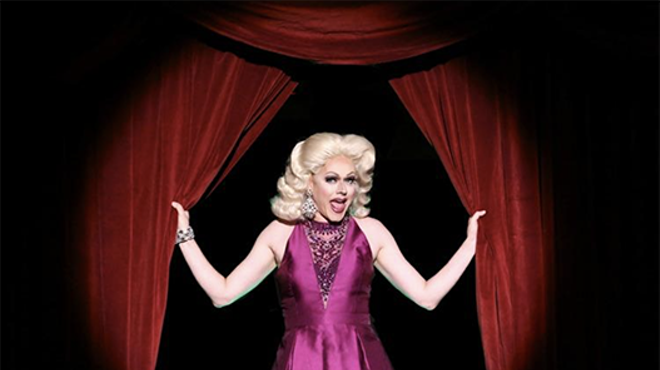The success story formula skews toward those who gallop, but sometimes the long, steady trot gets the gold. "This story has been in my saddlebag my whole life," says Susan Krawitz, whose forthcoming middle-grade novel Viva, Rose! (Holiday House, 2017) won the Sydney Taylor Manuscript Award.
Her family spent holidays at the Bensonhurst home of larger-than-life great-aunts Hannah and Edie. Theatrical Hannah dressed the girls up and paraded them down the staircase like debutantes, playing "Fiddler on the Roof" tunes on the piano. Uncle Sheldon told stories about Texan cousins Abe and Rose, including one about Abe riding with Pancho Villa. Could it be true? Nobody knew, but Edie's bedroom had a sombrero on the wall, and a colorful serape.
Flash forward a few decades. Krawitz's historian sister moved to Texas and decided to do some research. Sure enough, she unearthed a microfiche account of Abraham Solomon's exploits with Villa, including the line, "Every once in a while you come across a life story that, in its color and action, seems almost fictional." Cue Viva, Rose!
"I was mindblown," says Krawitz. The 1932 article "confirmed all our legends and gave us some new ones."
To tailor the tale for young readers, she shifted focus from Abe to his kid sister Rose. Did she know what her brother was doing? Were they in touch? The historical record was blank, so the author was free to invent.
Viva, Rose! opens in El Paso's Pickens Mercantile, where 13-year-old Rose spots a newspaper photo of her brother among the Villistas. Abe has spun many lies—is he a Brooklyn fishmonger with older sib Eli, or a cowboy?—but this is the wildest. Rose's Russian-born parents (Papa's a kosher butcher and cantor; Momma hopes to matchmake her rebel daughter with gap-toothed Shmuley Schnitzler) must never find out. And she must contact Abe, pronto.
Rose's scheme goes awry, and she winds up in Pancho Villa's encampment, where the "Mexican Robin Hood" drafts her as a playmate for his imperious daughter. Will Rose get home safely? Will she find her mysterious brother? Will lessons be learned? Expect many middle-school book reports to pose the same questions: Viva, Rose! was an early librarian favorite at the ALA Conference, and the New York Observer called it "the next big book about Jews in the west."
It all seems a little surreal to Krawitz, a journalist and freelance editor who's had more than her share of near-misses over the past three decades. "It's been a long, strange trip," she admits as two mismatched tomcats, Tiger and Harry, patrol braided rugs. She brings tea and home-baked shortbread made with oats, Irish butter, almonds, and chia. Krawitz has chronic Lyme from a flare-up two years ago, and says sardonically, "Very low sugar. I'm all about the healthy."
Dry humor with a pinch of kvetch is her native key. Though her conversation is peppered with riffs on persistence and bravery, she refuses to wax sentimental. How did it feel to see her book for the very first time? "The galley arrived the same day I sent off the page proofs, so all I could think was, 'Oh great, this has all the mistakes I just corrected.'"
Krawitz lives in the Marbletown hamlet known as The Vly. A couple of hardy hens strut through snowdrifts in front of her rambling 19th- century farmhouse, fronted by a rocking chair porch and dormant gardens. There's a former horse barn to one side and a hayloft and woodpile across the street.
If the lay of the land sounds familiar, you may be one of many readers addicted to her long-running Blue Stone Press column. "Most of the essays take place within a mile of my house," she explains. Like Seinfeld's "show about nothing," they often riff on some detail you've never quite noticed, spinning out into something much larger.
Krawitz moved into the "bigtime fixer-upper" with college boyfriend Jim Munson in 1984. The farmhouse was full, its outbuildings packed with a century's worth of accumulation. "I learned so much about the former residents, flipping through the card catalogue of their lives," Krawitz says.
Munson worked as a carpenter and rock-climbing guide, while Krawitz did construction cleanup and taught at Learning Arts preschool. Her colleague Fred Burstein published a book called Rebecca's Nap. His carton of author copies arrived while he was at school, and his wife drove it over. "So I got to watch him unpack it in front of all these kids," Krawitz recalls. "I was blown away."
She wanted in. From second grade onward, teachers had praised her writing, but she never stayed in one school long enough to gain any traction. "My father was a migrant stockbroker," she says drily. The family zigzagged from Long Island to Chicago to Florida, where Krawitz attended three different schools in Tampa alone. A selfproclaimed introvert, she hated moving. "I raised myself with books. I lived in my bedroom." She also rode horses "like crazy, whenever I could," and loved to draw.
When her first creative writing teacher collected submissions for the Scholastic Art & Writing Awards, she banged out a story on a borrowed typewriter. Though she was her school's only finalist, Miss Sumner wasn't impressed. "She was the tennis team coach, and curried favor with the popular girls," Krawitz recalls tartly. "She was mad that none of them made the cut."
She won third place in the national contest, with 60,000 entrants. "I was so excited. I went to Miss Sumner and asked, 'Do you think I can actually write? Could I be a writer someday?' And she looked at me and said, 'No.'"
Krawitz still seethes at the memory—and her lack of defiance. "Why did I listen?" Shot down, she entered SUNY New Paltz as an art major. Eventually she switched to English, and "squirted out some poems," but avoided fiction, afraid to fail.
She met Munson in David Appelbaum's Zen class. After they moved to The Vly, "we did every hippie thing ever done anywhere by anybody. Maple syrup, milking our Nubian dairy goats, chickens, geese, firewood—we didn't have a furnace for seven years." This sparked a children's book idea about nature in cities: what kinds of plants grow through cracks in the sidewalk, urban birds. Overlook Press took an interest, but the project dead-ended after a year.
Meanwhile, the couple started a climbing school called Mountain Skills. They employed five guides, and Munson took clients climbing all over the world. Krawitz gave birth to a redheaded daughter named Hannah. Two months later, Munson was setting an anchor for a client in Utah when a fridge-size block cracked loose. He fell, breaking three vertebrae.
"So I flew out to Salt Lake with an eight-week-old," Krawitz says. Partially paralyzed, Munson was transferred to a Nyack rehab. "He and Hannah started to walk at about the same time." The tragedy shattered the family; Munson sold the business, and they split up when Hannah was 18 months old.
"I've been a single mom ever since," Krawitz says. "The rug got pulled out from under me, and I got brave. I get brave sometimes, and stuff actually happens."
She sold a children's story to Highlights magazine, winning a $1,000 contest. Blue Stone Press publisher Lori Childers hired her as a reporter, often on agricultural stories. One of these was reprinted in Practical Horseman; Krawitz freelanced for them, Cricket, Chronogram, Roll, and Upstate House, and collaborated with Fabia Wargin on a column about local farms.
Interviewing farmers had an unexpected perk: Davenport Farms' Bruce Davenport has been Krawitz's partner for the past nine years. "Bruce has been super supportive," she says gratefully.
Another support was writers' groups. Newbery Honor Medalist Audrey Couloumbis urged her to diagram screenplays to study plot structure. "I really needed a clothesline from the house to the barn," says Krawitz. She wrote an original screenplay, What You Wish For, and got hired to write a second, Almost Never.
Couloumbis also spurred her to start Viva, Rose! Krawitz completed a first draft in 2002. "It got pushed aside nine zillion times," she says. "Life, life, life, life." After several dances with agents, the novel went back in the drawer until Krawitz saw an announcement for the Sydney Taylor Award, honoring children's literature with Jewish themes. She polished the manuscript, sent it, and won. Agent Emma Parry brought it to Holiday House, which is giving the book a big launch.
The award-winning author watches flames leap in the woodstove, allowing herself a moment to bask. "It brings me back to Miss Sumner, who said no. I always wanted to prove her wrong. You don't need someone else's permission to be a writer. I gave myself permission." In the words of Viva, Rose! cowgirl Audie, "You need a helping hand, there's a couple of them swinging on the ends of your arms."
This seems an especially serendipitous time to publish a book about immigrant Jews and oppressed Mexicans. Krawitz deftly weaves them together with an improvised seder in the desert, with bitter herbs plucked from a stream and a cloth-wrapped tortilla standing in for matzoh. "There's a common thread of 'May we all be free,'" she explains. "Rose goes from the myopic view of a child to seeing the world in shades of gray, not black and white. With that comes the ability to empathize. It's not just you and your problem, or your people's problem. It's humanity. One little ship. We're all on it."













